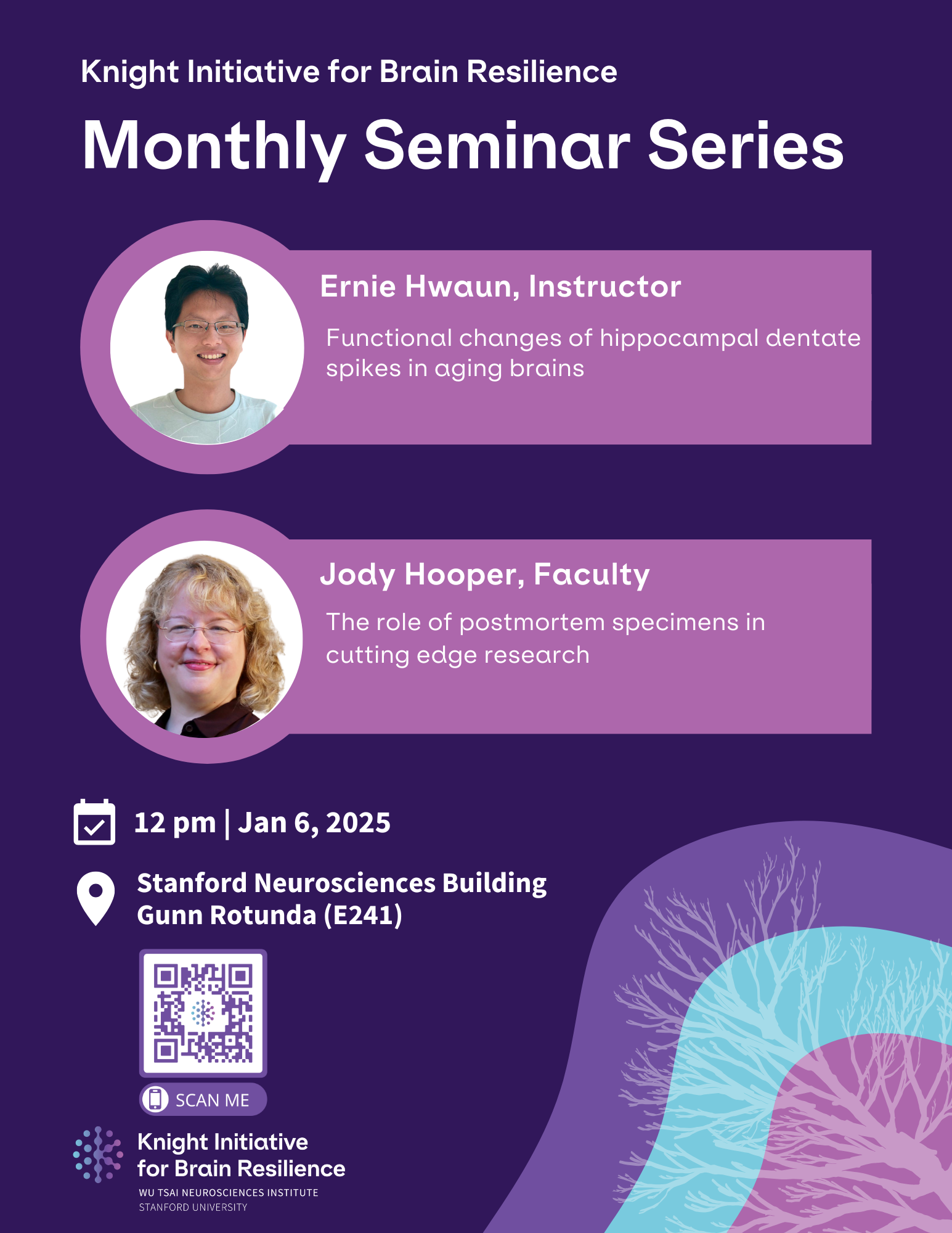Event Details:

The first Monday of each month, the Knight Initiative for Brain Resilience will host monthly seminars to bring together awardees, affiliated professors and students for a series of 'lab meeting' styled talks. Two speakers will discuss their brain resilience research, experiences in the field, and answer questions about their work.
To support our researchers' participation in this open science ‘lab-meeting style’ exchange of ideas, these seminars are not streamed/recorded and are only open to members of the Stanford community.
Ernie Hwaun, Stanford University
Functional changes of hippocampal dentate spikes in aging brains
For almost a decade, I have dedicated myself to studying the fundamental mechanisms of learning and memory. My goal is to apply my findings to improve treatment options for patients with dementia. During my PhD, I discovered preferential reactivation of novel experiences during sleep, suggesting that memory circuits actively select new information to integrate into long-term storage. Additionally, I identified impaired sequential neural activity in memory circuits as a potential mechanism underlying erroneous memory recall. My current research continues to focus on understanding the circuit mechanisms that support cognitive and memory functions, with the aim of comprehending how network abnormalities contribute to the manifestation of age-related brain diseases. I believe that a circuit-based perspective, combined with advanced neuroscience techniques, will lead to therapies that directly control pathogenic pathway and restore normal cognitive functions with minimal side effects.
Jody Hooper, Stanford University
The role of postmortem specimens in cutting edge research
The Research Autopsy Center, which is part of the Department of Pathology at Stanford University, arranges and performs autopsies on an urgent basis to collect tumor and other tissues for researchers in many different areas of study. Specimens collected after death have been used to grow living cell lines which can be used to evaluate for genetic mutations and test new chemotherapies. Samples can also undergo genetic sequencing and RNA expression analysis, as well as immunohistochemical and proteomic studies. The scientific data obtained from research autopsy tissue is an extremely powerful tool to advance scientific discovery.
